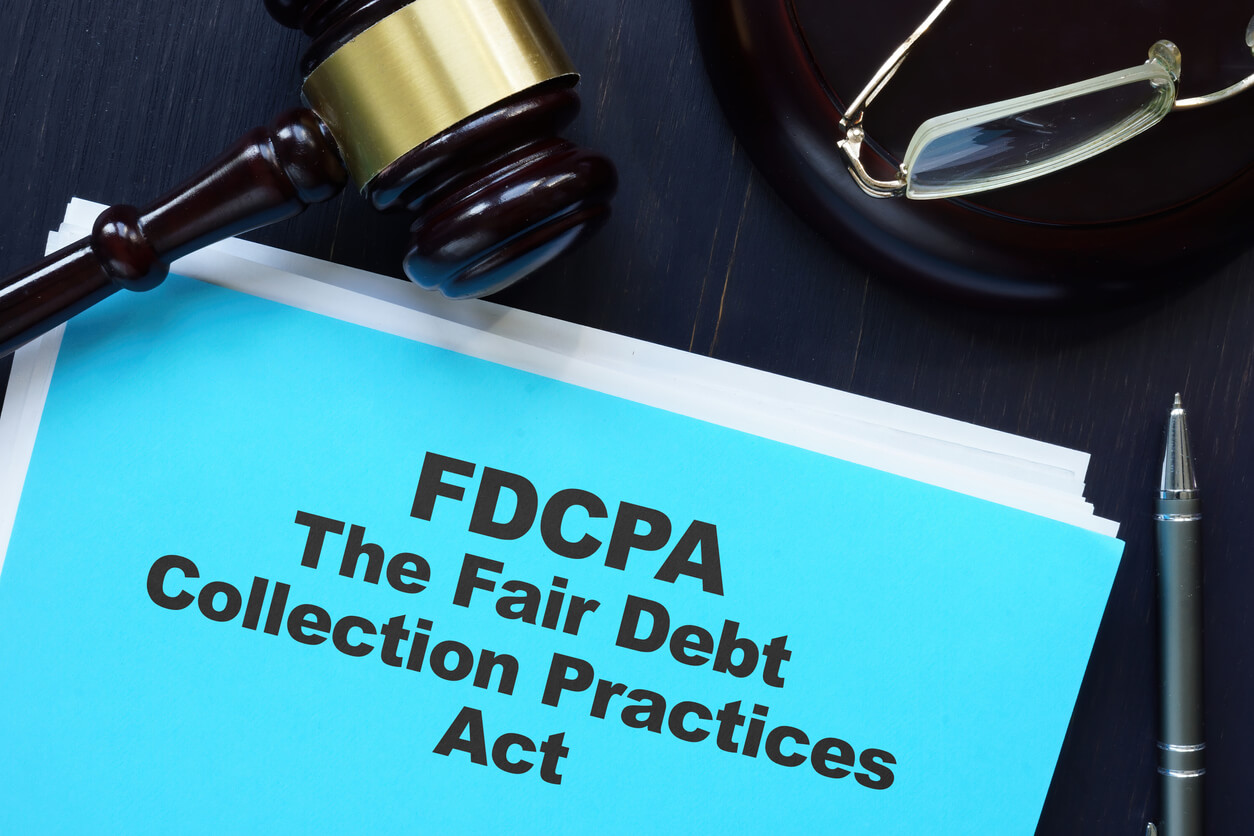The Fair Debt Collection Practices Act (FDCPA) was signed into law in 1978 to protect consumers from unscrupulous debt collectors’ actions. It was the government’s response when presented with abundant evidence of widespread “abusive, deceptive and unfair” debt collection practices. After being presented with evidence, Congress passed the law that these practices contributed to “personal bankruptcies, marital instability, and loss of employment.” Many questions about how to interpret the FDCPA have arisen in more than 40 years since its passage, including how to handle new technologies such as email and texting. Pressure from consumers and debt collectors to update and clarify the rules led the Consumer Financial Protection Bureau (CFPB) to finally propose new rules that are likely to take effect in October 2020.

What Is The Federal Debt Collection Practices Act (FDCPA)?
The FDCPA prohibits debt collectors from engaging in unfair, abusive, or deceptive practices when collecting debts for:
- Credit Cards;
- Mortgages;
- Medical Expenses;
- Other personal, family, or household debts.
It does not cover the collection of business debts or collection efforts by the original creditor. Debt collectors are defined as collection agencies, debt buyers, debt collection companies, and lawyers that represent debtors.
What Rules Does The FDCPA Provide To Protect Consumers?
- Time and Place: It is prohibited to contact consumers to collect a debt before 8 a.m. or after 9 p.m. They must also refrain from contacting you at a place or time they know is inconvenient, such as calling at a place of employment or during the times they know a night worker is sleeping.
- Harassment: Collection professionals may not make repetitive calls or ones that are intended to annoy or abuse the person answering the phone. Obscene language or threats of violence are prohibited, and they may not publish lists of debtors or refuse to identify themselves.
- Attorney Representation: All direct calls to a debtor must cease as soon as the collection professional is informed that an attorney represents the debtor.
- Ending Contact: Once a debt collector is informed in writing that a consumer does not want to be contacted, they may only contact that consumer to say there will not be further contact and inform them that they may be subject to legal action.
It’s important to remember that when you refuse contact with a debt collector, they can still start legal action against you and report negative information to credit agencies.
Procedures For Debt Collectors Under The FDCPA
Debt collectors are required to provide you with the following information when they contact you:
- The name of the creditor they represent;
- The amount of money you owe;
- The fact that you have a right to dispute the debt;
- Inform you that you have a right to request the name and address of the original creditor.
It’s important to know if they fail to provide you with the information immediately, they must provide it within five days of the initial contact if you make this request in writing.
What Are The Most Common FDCPA Violations?
Despite the efforts of the CFPB to enforce the law, violations are not uncommon. Contact from people that don’t follow the law can also be a red flag that they are not debt collectors, but scammers. These are the most common violations :
- Calling excessively, at prohibited times and at the workplace;
- Lying about how much is owed to steal the excess money;
- Contacting third parties;
- Refusing to identify themselves and the creditor they represent;
- Refusing to validate a debt;
- Ignoring the request to cease communication;
- Threatening, slandering and harassing behavior.
Violations of the FDCPA should be reported to the CFPB website, where a complaint can easily be filed online.
What Are The Proposed Updates?
In May 2019, the CFPB announced its proposed updates to the FDCPA. The intention of the proposed new rules was to clarify the law’s intentions and to make it more compatible with modern technology. These are some of the new rules being proposed:
- Debt Collectors are limited to calling a consumer a maximum of 7 times in a week to try to reach them. If they succeed in reaching the customer and having a conversation, they must wait a week before calling them again.
- Consumers can be contacted by debt collectors using text messaging or email, but the communication must include instructions on how to opt out of receiving further texts or emails.
- Clarifies that consumers can restrict what media is used for communication, by either choosing or restricting certain types. For example, a consumer can choose to be contacted only with email and never by telephone.
- Consumers have the right to restrict the times and places for further contact, and the proposed new rules clarify that there is no specific language the consumer must use to communicate their preferences.
- The term “limited content message” is used to describe how much information can be left on a voicemail message without it being considered “a communication.” In other words, it will be possible to leave a message with an assistant or family member as long as it doesn't provide too much detail.
- Debt collectors must disclose that a debt is time-barred and may not imply that legal action can be taken for time-barred debt.
- Clarifies that a personal representative of a deceased consumer must be treated the same as a consumer.
- Prohibits reporting debt to consumer reporting agencies before communicating with the consumer.
- Prohibits, with some exceptions, the sale, transfer, or placement for collection of a debt that they should know was either paid or discharged in bankruptcy.
Complaints From The Debt Collection Industry
When credit card companies, stores, and other parties are unable to persuade consumers to pay what they owe, they often send the account to a debt collector. When the debt collector fails, there are businesses that buy debt for pennies on the dollars, hoping to collect more than they paid. These industries claim that the FDCPA unfairly impedes their business and that the proposed new rules will make things even worse. For example, when consumers sue for violations of the FDCPA, they can win back their attorneys fees if they prevail, but the debt collectors and debt buyers cannot. Lobbyists for the debt collection agencies claim that the FDCPA is being misused as a “debt evasion” statute and are increasingly willing to take their cases to trial.
Balancing The Interests of Consumers and Debt Collectors
The Consumer Financial Protection Bureau (CFPB) believes that creating a bright-line rule for compliance will benefit both consumers and debt collectors. For debt collectors, the clarifications should reduce litigation and threats of litigation about repeated or improper contacts. It will also be easier for consumers to identify unfair practices and to distinguish legitimate debt collectors from scammers.
About ABC Legal Services
ABC Legal is the nation’s leading service of process and court filing company and is the official process server to the U.S. Department of Justice. Docketly is a subsidiary of ABC Legal, providing appearance counsel on a digital, custom-built platform that smoothly integrates with our applications and services. ABC Legal’s applications are cloud-based and compatible for use on desktop, browser, and smartphones. Our solutions and digital approach ensure process server partners, law firm customers, and their clients save valuable time and resources when serving legal notices safely and with maximum compliance, control, and transparency. ABC Legal is based in Seattle, WA, with more than 2,000 process servers throughout the U.S., as well as internationally in more than 75 countries. To learn more about ABC Legal, our solutions, and subsidiary company Docketly, visit www.abclegal.com.
Written by
ABC Legal ServicesService made simple—down the road and across the country. Join the 50,000+ professionals who trust ABC Legal for service of process.







